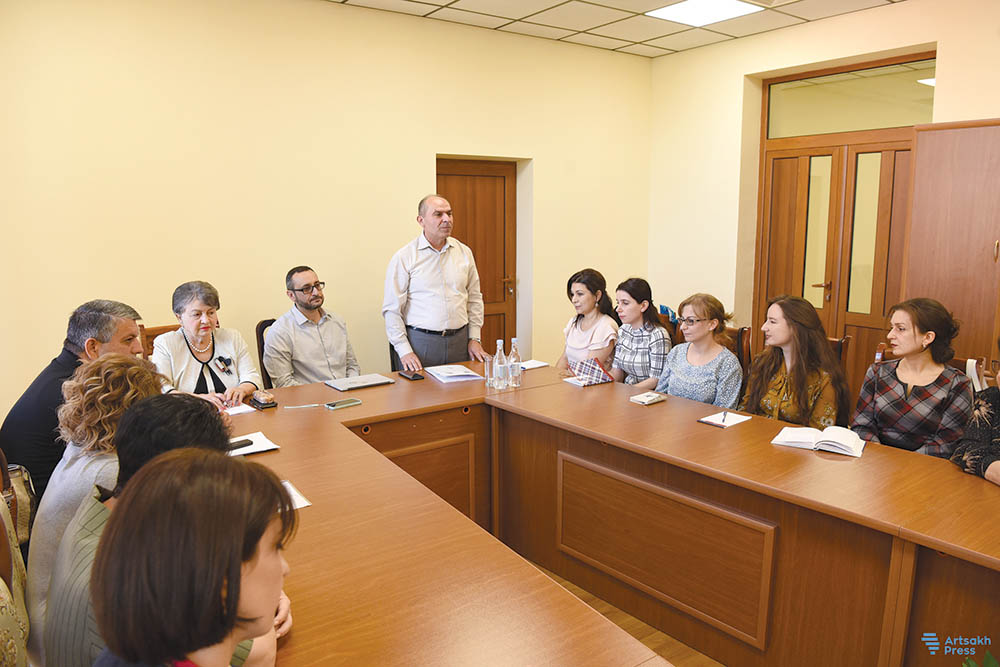
Photo: Artsakh Press
Dr. Allen Azizian
A few days after the onset of the 2020 Nagorno-Karabakh (Artsakh) war, a group of medical and mental health professionals from Armenia and the Diaspora, myself included, started to volunteer in hospitals that were treating military service members. It did not take long for most of us to realize that the aftermath of the war was going to be catastrophic. In the morning when the capitulation was signed, I reported to where I was volunteering with profound sadness, anger, and self-blame.
Since 1999, I had been a frequent visitor to Artaskh, like most Armenians from the diaspora, at times for leisure, at other times for involvement in various projects. My family and I had come to build close relationships with people from different regions and all aspects of life in Artaskh. We had friends with two to three generations of displaced families. Some of these families were now mourning the loss of their children put at rest next to their own siblings or parents who died defending Artaskh during the first war.
Accepting the bitter consequences of losing a war was not easy. Feelings of disappointment, deception, and helplessness were common among colleagues and friends abroad. But dealing with feelings is different from continuing to live in Artsakh. Since November 9, 2020, I have visited Artsakh four times. The road from Goris to Stepanakert, now passing through Mets Shen, has few if any foreign visitors. The diaspora missions that used to travel through Karvajar and Lachin with a hodgepodge of patriotic songs have ceased. There are no large groups taking selfies near the “We Are Our Mountains” monument, also known as “tatik-papik.” Putting things in perspective, today, our compatriots in Artsakh are doing the impossible. Besieged by the enemy from all directions, relatively forgotten, they continue to live and defend their homeland. In my own field, college students are in classrooms, professors are teaching, conducting research, organizing events and conferences. Other colleagues in medical and mental health are treating and caring for patients.On September 13, 2022, when Azerbaijan attacked the sovereign territory of Armenia, I went to Armenia and then headed to Stepanakert. With the ceasefire, my colleagues and I decided to organize and host a conference in Artsakh State University. The topic was focused on integration of psychotherapies, but the conference was meant more as a steppingstone toward establishing collaboration with academicians and clinicians in Artsakh. The conference was organized by Dr. Hakob Hakobyan, a long-term friend and colleague from Artsakh, who is a psychiatrist and a member of «Արդարություն կուսակցություն» (Justice) political party, and Dr. Anahit Lalayan, a practicing clinical psychologist. Prof. Armen Sargsyan, President of Artsakh State University, and Dean Vitya Yaramishyan, coordinated the efforts and set an agenda for continuous collaboration. Dean Yaramishyan oversees a practicum site for mental health services and is exploring options where psychology students can shadow clinicians and gain data collection and analysis experience.
We are presently preparing for a presentation by Dr. Azatyan, a practicing medical doctor and a PhD candidate, whose dissertation I have the pleasure of co-supervising, on Adverse Childhood Experiences among Armenians. Another student is preparing a study on adaptation problems in displaced Armenians from Shushi and Hadrut.
These activities are positive in the sense of keeping some form of involvement with Artsakh, but there are far more pertinent issues on hand, particularly that of national security. We have limited time to step out of our comfort zone and direct our efforts toward strengthening what is left of Artsakh. Visiting Artsakh is not easy, it entails risk, and there is always the potential for renewed fighting. It is not, however, impossible, and if the Armenian diaspora is to unite, not behind but on equal footing, with those who have a solid position to defend Artsakh’s inalienable right to self-determination, we could save what may result in depopulation of Armenians from Artsakh.
Dr. Azizian is an associate professor of criminology and a forensic psychologist and co-founder of the Arthur Pogosyan Mental Health Award which supports early career medical or graduate mental health professionals in Armenia and Artsakh.
 Hye Sharzhoom Armenian Action
Hye Sharzhoom Armenian Action